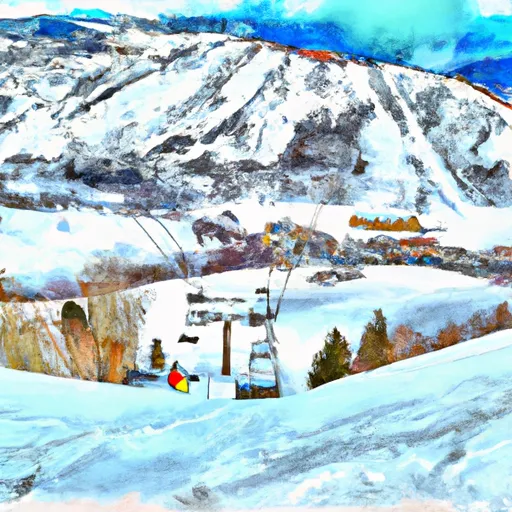MICHIGAN SNOW REPORT
Last Updated: February 24, 2026
Snowpack levels across the state are currently 118% of normal. The deepest snowpack in Michigan was last observed at Painesdale with a snowpack depth of 66”, about 103% of normal when compared to it's 64" average depth for this time of year. Michigan's snow report indicates a diverse range of snowpack depths, with areas like Big Bay and Herman showcasing significant accumulations of 47 inches and 55 inches, respectively. The five-day forecast predicts modest snowfalls across the state, potentially affecting local events, such as the noted decline in weed sales and the discovery of the Lac La Belle shipwreck.
Michigan Snowpack Map
Explore real-time snowpack depths across Michigan.
Winter Storm Warnings
February 24 2026
ANTRIM; OTSEGO; MONTMORENCY; ALPENA
WESTERN CHIPPEWA; CENTRAL CHIPPEWA; SOUTHEAST ...
EMMET; CHEBOYGAN; PRESQUE ISLE; MACKINAC ...
IRON; DICKINSON; MENOMINEE
ALGER; LUCE; DELTA; SOUTHERN SCHOOLCRAFT; ...
ONTONAGON; GOGEBIC
KEWEENAW; HOUGHTON; BARAGA; MARQUETTE; SOUTHERN ...
LAKE SUPERIOR EAST OF A ...
MARQUETTE TO MUNISING MI; MUNISING ...
LAKE SUPERIOR FROM GRAND MARAIS ...
GRAND MARAIS TO WHITEFISH POINT ...
Avalanche Conditions
Michigan Ski Area Forecast
Next 15 Days
-
 Alpine Valley
Alpine Valley
-
 Apple Mountain
Apple Mountain
-
 Big Powderhorn Mountain
Big Powderhorn Mountain
-
 Bittersweet Ski Area
Bittersweet Ski Area
-
 Blackjack Ski Resort
Blackjack Ski Resort
-
 Boyne Highlands
Boyne Highlands
-
 Boyne Mountain
Boyne Mountain
-
 Cannonsburg Ski Area
Cannonsburg Ski Area
-
 Challenge Mountain
Challenge Mountain
-
 Crystal Mountain
Crystal Mountain
-
 Gladstone Sports Park
Gladstone Sports Park
-
 Hickory Hills
Hickory Hills
-
 Indianhead Mountain Resort
Indianhead Mountain Resort
-
 Marquette Mountain
Marquette Mountain
-
 Missaukee Mountain
Missaukee Mountain
-
 Mont Ripley
Mont Ripley
-
 Mount Bohemia
Mount Bohemia
-
 Mt. Brighton
Mt. Brighton
-
 Mt Holiday Ski Area
Mt Holiday Ski Area
-
 Mt. Holly Ski Area
Mt. Holly Ski Area
-
 Mt. Zion Ski Area
Mt. Zion Ski Area
-
 Mulligan's Hollow Ski Bowl
Mulligan's Hollow Ski Bowl
-
 Norway Mountain
Norway Mountain
-
 Nubs Nob Ski Area
Nubs Nob Ski Area
-
 Pine Mountain Resort
Pine Mountain Resort
-
 Shanty Creek Resorts
Shanty Creek Resorts
-
 Ski Brule
Ski Brule
-
 Snow Snake Mountain
Snow Snake Mountain
-
 Swiss Valley Ski Lodge
Swiss Valley Ski Lodge
-
 Timber Ridge Ski Area
Timber Ridge Ski Area
-
 Treetops Sylvan Resort
Treetops Sylvan Resort
Michigan Snow Report FAQs
How often is this report updated?
Daily from SNOTEL and NOAA sources.
What are snowpack levels in Michigan like right now?
Snowpack levels across Michigan are approximately 118.0% of normal compared to previous years.
Where is it coldest in Michigan right now?
Snow Paid Observer For Kanj is experiencing frigid temperatures of 17°.
Where in Michigan will get the most snowfall this week?
Newberry-Luce County Road Commission is expected to receive up to 7" of more snowfall over the next 5 days.
Where is the most snow in Michigan today?
Currently at Painesdale with 66".
